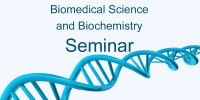Lehane Group - Antimalarial drug action and resistance
We study membrane transport processes in the Plasmodium parasites that cause malaria. These parasites are adept at becoming resistant to antimalarial therapies. New drugs, as well as new approaches for the prevention or reversal of drug resistance, are needed to combat malaria. Currently, our main priorities are to:
- identify and characterise parasite transport proteins that have potential as drug targets,
- develop screening assays to discover chemical inhibitors of parasite transport proteins,
- understand the mechanisms by which parasites become resistant to antimalarial drugs.
Group Leader
Postdoctoral Fellow
Honours Students
Masters Students
PhB Student
Qiu, D.*, Pei, J.V.*, Rosling J.E.O.*, Thathy, V., Li, D., Xue, Y., Tanner, J.D., Sietsma Penington, J., Aw, Y.T.V., Aw, J.Y.H., Xu, G., Tripathi, A.K., Gnadig, N.F., Yeo, T., Fairhurst, K.J., Stokes, B.H., Murithi, J.M., Kümpornsin, K., Hasemer, H., Dennis, A.S.M., Ridgway, M.C., Schmitt, E.K., Straimer, J., Papenfuss, A.T., Lee, M.C.S., Corry, B., Sinnis, P., Fidock, D.A., van Dooren, G.G., Kirk, K. and Lehane, A.M. (2022) A G358S mutation in the Plasmodium falciparum Na+ pump PfATP4 confers clinically-relevant resistance to cipargamin. Nat. Comm. 13, 5746. *Joint first authors
Lopes, E.A., Mestre, R., Fontinha, D., Legac, J., Pei, J.V., Sanches-Vaz, M., Mori, M., Lehane, A.M., Rosenthal, P.J., Prudencio, M. and Santos, M.M.M. (2022) Discovery of spirooxadiazoline oxindoles with dual-stage antimalarial activity. Eur. J. Med. Chem. 236, 114324.
Tse E.G., Aithani L., Anderson M., Cardoso-Silva J., Cincilla G., Conduit G.J., Galushka M., Guan D., Hallyburton I., Irwin B.W.J., Kirk K., Lehane A.M., Lindblom J.C.R., Lui R., Matthews S., McCulloch J., Motion A., Ng H.L., Öeren M., Robertson M.N., Spadavecchio V., Tatsis V.A., van Hoorn W.P., Wade A.D., Whitehead T.M., Willis P. and Todd M.H. (2021) An open drug discovery competition: experimental validation of predictive models in a series of novel antimalarials. J. Med. Chem. 64, 16450-16463.
Zeng, J.M., Hapuarachchi, S.V., Shafik, S.H., Martin, R.E., Kirk, K., van Dooren, G.G.* and Lehane, A.M.* (2021) Identifying the major lactate transporter of Toxoplasma gondii tachyzoites. Sci. Rep. 11, 6787. *Joint senior authors
Gilson, P.R., Kumarasingha, R., Thompson, J., Zhang, X., Penington, J., Kahlor, R., Bullen, H.E., Lehane, A.M., Dans, M.G., de Koning-Ward, T.F., Holien, J.K., Soares da Costa, T.P., Hulett, M.D., Buskes, M.J., Crabb, B.S., Kirk, K., Papenfuss, A.T., Cowman, A.F. and Abbott, B.M. (2019) A 4-cyano-3-methylisoquinoline inhibitor of Plasmodium falciparum growth targets the sodium efflux pump PfATP4. Sci. Rep. 9, 10292.
Lehane, A.M.*, Dennis, A.S.M.*, Bray, K.O., Li, D., Rajendran, E., McCoy, J.M., McArthur, H.M., Winterberg, M., Rahimi, F., Tonkin, C.J., Kirk, K. and van Dooren, G.G. (2019) Characterization of the ATP4 ion pump in Toxoplasma gondii. J. Biol. Chem. 294, 5720-5734. *Joint first authors
Uboldi, A.D., Wilde, M., McRae, E.A., Stewart, R.J., Dagley, L.F., Yang, L., Katris, N.J., Hapuarachchi, S.V., Coffey, M.J., Lehane, A.M., Botte, C.Y., Waller, R.F., Webb, A.I., Tonkin, C.J. (2018) Protein Kinase A Negatively Regulates Ca2+ signaling in Toxoplasma gondii. PLoS Biology 16, e2005642.
Lawrence, N., Dennis, A.S.M., Lehane, A.M., Ehmann, A., Harvey, P.J., Benfield, A., Cheneval, O., Henriques, S.T., Craik, D.J. and McMorran, B.J. (2018) Novel defense peptides from human platelet factor 4 kill Plasmodium by selective membrane disruption. Cell Chem. Biol. 25, 1140-1150.
Rosling, J.E.O., Ridgway, M.C., Summers, R.L., Kirk, K. and Lehane, A.M. (2018) Biochemical characterization and chemical inhibition of PfATP4-associated Na+-ATPase activity in Plasmodium falciparum membranes. J. Biol. Chem. 293, 13327-13337.
Dennis, A.S.M., Rosling, J.E.O., Lehane, A.M. and Kirk, K. (2018) Diverse antimalarials from whole-cell phenotypic screens disrupt malaria parasite ion and volume homeostasis. Sci. Rep., 8, 8795.
Dennis, A.S.M., Lehane, A.M., Ridgway, M.C., Holleran, J.P. and Kirk, K. (2018) Cell swelling induced by the antimalarial KAE609 (cipargamin) and other PfATP4-associated antimalarials. Antimicrob. Agents Chemother., 62, e00087-18.
McCoy, J.M., Stewart, R.J., Uboldi, A.D., Li, D., Schroder, J., Scott, N.E., Papenfuss, A.T., Lehane, A.M., Foster, L.J. and Tonkin, C.J. (2017) A forward-genetic screen identifies a negative regulator of rapid Ca2+-dependent cell egress in the intracellular parasite Toxoplasma gondii. J. Biol. Chem., 292, 7662-7674.
Hapuarachchi, S.V., Cobbold, S.A., Shafik, S.H., Dennis, A.S., McConville, M.J., Martin, R.E., Kirk, K. and Lehane, A.M. (2017) The malaria parasite’s lactate transporter PfFNT is the target of antiplasmodial compounds identified in whole cell phenotypic screens. PLoS Pathogens 13, e1006180.
Hewitt, S.N., Dranow, D.M., Horst, B.G., Abendroth, J.A., Forte, B., Hallyburton, I., Jansen, C., Baragana, B., Choi, R., Rivas, K.L., Hulverson, M.A., Dumais, M., Edwards, T.E., Lorimer, D.D., Fairlamb, A.H., Gray, D.W., Read, K.D., Lehane, A.M., Kirk, K., Myler, P.J., Wernimont, A., Walpole, C., Stacy, R., Barrett, L.K., Gilbert, I.H. and Van Voorhis, W.C. (2017) Biochemical and structural characterization of selective allosteric inhibitors of the Plasmodium falciparum drug target, prolyl-tRNA-synthetase. ACS Infect. Dis. 3, 34-44.
Van Voorhis, W.C., [81 authors], Kirk, K., [6 authors], Lehane, A.M., [96 authors] and Willis, P.A. (2016) Open source drug discovery with the Malaria Box compound collection for neglected diseases and beyond. PLoS Pathogens 12, e1005763.
Richards, S.N.1, Nash, M.N.1, Baker, E.S., Webster, M.W., Lehane, A.M., Shafik, S.H. and Martin, R.E. (2016) Molecular mechanisms for drug hypersensitivity induced by the malaria parasite's chloroquine resistance transporter. PLoS Pathogens, In press. 1Joint first authors
Veiga, M.I.*, Dhingra, S.K.*, Henrich, P.P., Straimer, J., Gnadig, N., Uhlemann, A., Martin, R.E., Lehane, A.M. and Fidock, D.A. (2016) Globally prevalent PfMDR1 mutations modulate Plasmodium falciparum susceptibility to artemisinin-based combination therapies. Nat. Comm. 7, 11553. *Joint first authors
van Schalkwyk, D.A.*, Nash, M.N.*, Shafik, S.H.*, Summers, R.L., Lehane, A.M., Smith, P.J. and Martin, R.E. (2016) Verapamil-sensitive transport of quinacrine and methylene blue via mutant PfCRT reduces the malaria parasite’s susceptibility to these tricyclic drugs. J. Infect. Dis. 13, 800-810. *Joint first authors
Petersen, I., Gabryszewski, S.J., Johnston, G.L., Dhingra, S.K., Ecker, A., Lewis, R.E., Almeida, M.J., Straimer, J., Henrich, P.H., Palatulan, E., Johnson, D.J., Coburn-Flynn, O., Sanchez, C., Lehane, A.M., Lanzer, M. and Fidock, D.A. (2015) Balancing drug resistance and growth rates via compensatory mutations in the P. falciparum chloroquine resistance transporter. Mol. Microbiol. 97, 381-395.
Marchetti, R.V., Lehane, A.M., Shafik, S.H., Winterberg, M., Martin, R.E. and Kirk, K. (2015) A lactate and formate transporter in the intraerythrocytic malaria parasite, Plasmodium falciparum. Nature Comm. 6, 6721.
Jiménez-Díaz, M.B., Ebert, D., Salinas, Y., Pradhan, A., Lehane, A.M., Myrand-Lapierre, M., O’Loughlin, K.G., Shackleford, D.M., de Almeida, M.J.L., Carillo, A., Clark, J., Dennis, A.S.M., Diep, J., Deng, X., Duffy, S., Endsley, A.N., Guiguemde, G.F.A., Gomez-Lorenzo, M.G., Holbrook, G., Horst, J., Kim, C., Liu, J., Lee, M.C.S., Matheny, A., Martínez, M.S., Miller, G., Rodriguez-Alejandre, A., Sanz, L., Sigal, M., Spillman, N.J., Stein, P.D., Wang, Z., Zhu, F.,, Waterson, D., Knapp, S., Shelat, A.A., Fidock, D.A., Gamo, F.J., Charman, S.A., Mirsalis, J.C., Ma, H., Ferrer, S., Kirk, K., Angulo-Barturen, I., Kyle, D.E., DeRisi, J.L., Floyd, D.M. and Guy, R.K. (2014) (+)-SJ733: A clinical candidate for malaria that acts through ATP4 to induce rapid host-mediated clearance of Plasmodium. Proc. Natl Acad. Sci. USA.111, E5455- E5462.
Kirk, K. and Lehane, A.M. (2014) Membrane transport in the malaria parasite and its host erythrocyte. Biochem. J. 457, 1-18.
Lehane, A.M., Ridgway, M.C., Baker, E. and Kirk, K. (2014) Diverse chemotypes disrupt ion homeostasis in the malaria parasite. Mol. Microbiol. 94, 327-339.
Teng, R.*, Lehane, A.M.*, Winterberg, M., Shafik, S.H., Summers, R.L., Martin, R.E., van Schalkwyk, D.A., Junankar, P.R. and Kirk, K. (2014) 1H NMR metabolite profiles of different strains of Plasmodium falciparum. Biosci. Rep. 34, e00150. *Joint first authors
Hrycyna, C.A.*, Summers, R.L.*, Lehane, A.M.*, Pires, M.M., Namanja, H., Bohn, K., Kuriakose, J., Ferdig, M.T., Henrich, P.P., Fidock, D.A., Kirk, K., Chmielewski, J.** and Martin, R.E.** (2014) Quinine dimers are potent inhibitors of the Plasmodium falciparum Chloroquine Resistance Transporter and are active against quinoline-resistant P. falciparum. ACS Chem. Biol. 9, 722-730. *,**Equal contributions
Deane, K.J.*, Summers, R.L.*, Lehane, A.M., Martin, R.E.** and Barrow, R.A.** (2014) Chlorpheniramine analogues reverse chloroquine resistance in Plasmodium falciparum by inhibiting PfCRT. ACS Med. Chem. Lett. 5, 576-581. *,**Equal contributions
Lehane, A.M., McDevitt, C.A., Kirk, K. and Fidock, D.A. (2012) Degrees of chloroquine resistance in malaria – is the redox system involved? Int. J. Parasitol. – Drugs and Drug Resistance 2, 47-57.
Ecker, A., Lehane, A.M., Clain, J. and Fidock, D.A. (2012) PfCRT and its role in antimalarial drug resistance. Trends Parasitol. 28, 504-514.
Ecker, A., Lehane, A.M. and Fidock, D.A. (2012) Molecular markers of Plasmodium resistance to antimalarials. In: Staines, H.M., Krishna, S. (Eds), Treatment and prevention of malaria: antimalarial drug chemistry, action and use. Birkhauser Verlag, Basel.
Lehane, A.M., van Schalkwyk, D.A., Valderramos, S.G., Fidock, D.A. and Kirk, K. (2011) Differential drug efflux or accumulation does not explain variation in the chloroquine response of Plasmodium falciparum strains expressing the same isoform of mutant PfCRT. Antimicrob. Agents Chemother. 55, 2310-2318.
Lehane, A.M. and Kirk, K. (2010) Efflux of a range of antimalarial drugs and ‘chloroquine resistance reversers’ from the digestive vacuole in malaria parasites with mutant PfCRT. Mol. Microbiol. 77, 1039-1051.
Henry, R.I., Cobbold, S.A., Allen, R.J., Khan, A., Hayward, R., Lehane, A.M., Bray, P.G., Howitt, S.M., Biagini, G.A., Saliba, K.J. and Kirk, K. (2010) An acid loading chloride transport pathway in the intraerythrocytic malaria parasite, Plasmodium falciparum. J. Biol. Chem. 285, 18615-18626.
Lehane, A.M., Hayward, R., Saliba K.J. and Kirk, K. (2008) A verapamil-sensitive chloroquine-associated H+ leak from the digestive vacuole in chloroquine-resistant malaria parasites. J. Cell Sci. 121, 1624-1632.
Lehane, A.M. and Saliba, K.J. (2008) Common dietary flavonoids inhibit the growth of the intraerythrocytic malaria parasite. BMC Research Notes 1, 26.
Lehane, A.M. and Kirk, K. (2008) Chloroquine resistance-conferring mutations in pfcrt give rise to a chloroquine-associated H+ leak from the malaria parasite’s digestive vacuole. Antimicrob. Agents Chemother. 52, 4374-4380.
Saliba, K.J., Lehane, A.M. and Kirk, K. (2008) A polymorphic drug pump in the malaria parasite. Mol. Microbiol. 70, 775-779.
Lehane, A.M., Marchetti, R.V., Spry, C., van Schalkwyk, D.A., Teng, R., Kirk, K and Saliba. K.J. (2007) Feedback inhibition of pantothenate kinase regulates pantothenol uptake by the malaria parasite. J. Biol. Chem. 282, 25395-25405.
Lehane, A.M., Korres, H. and Verma, N.K. (2005) Bacteriophage-encoded glucosyltransferase GtrII of Shigella flexneri: membrane topology and identification of critical residues. Biochem. J. 389, 137-143.
Lehane, A.M.*, Saliba, K.J.*, Allen, R.J.W. and Kirk, K. (2004) Choline uptake into the malaria parasite is energized by the membrane potential. Biochem. Biophys. Res. Comm. 320, 311-317. *Joint first authors.
View all publications on the ANU Researchers website.

Adele Lehane

ANU scientists exploit malaria's Achilles' heel

BSB Seminar: A chemogenetics platform for antimalarial drug target identification and hit discovery

BSB PhD Exit Seminar: Amodiaquine resistance in the malaria parasite – revealing the How

Feeling hot in here: thermotolerance and drug sensitivity in malaria parasites

Chromatin structure and epigenetics in Plasmodium falciparum
The genome of the malaria parasite Plasmodium falciparum is maintained primarily as transcriptionally competent, euchromatin with only rest

Roles of IgM in immunity to malaria in humans
A key mediator of protective immunity to malaria is antibodies that block merozoite invasion of the RBC.

Targeting host cell factors as a novel anti-malarial strategy
Malaria causes a significant health burden worldwide. An efficient vaccine has yet to be developed but a handful of treatment options exist.

New tools for malaria eradication: integrated packages for geospatial mapping, population-based sampling and high-sensitivity testing
Malaria elimination/ eradication has been a global policy for the past decade and has enabled some tremendous achievements.














